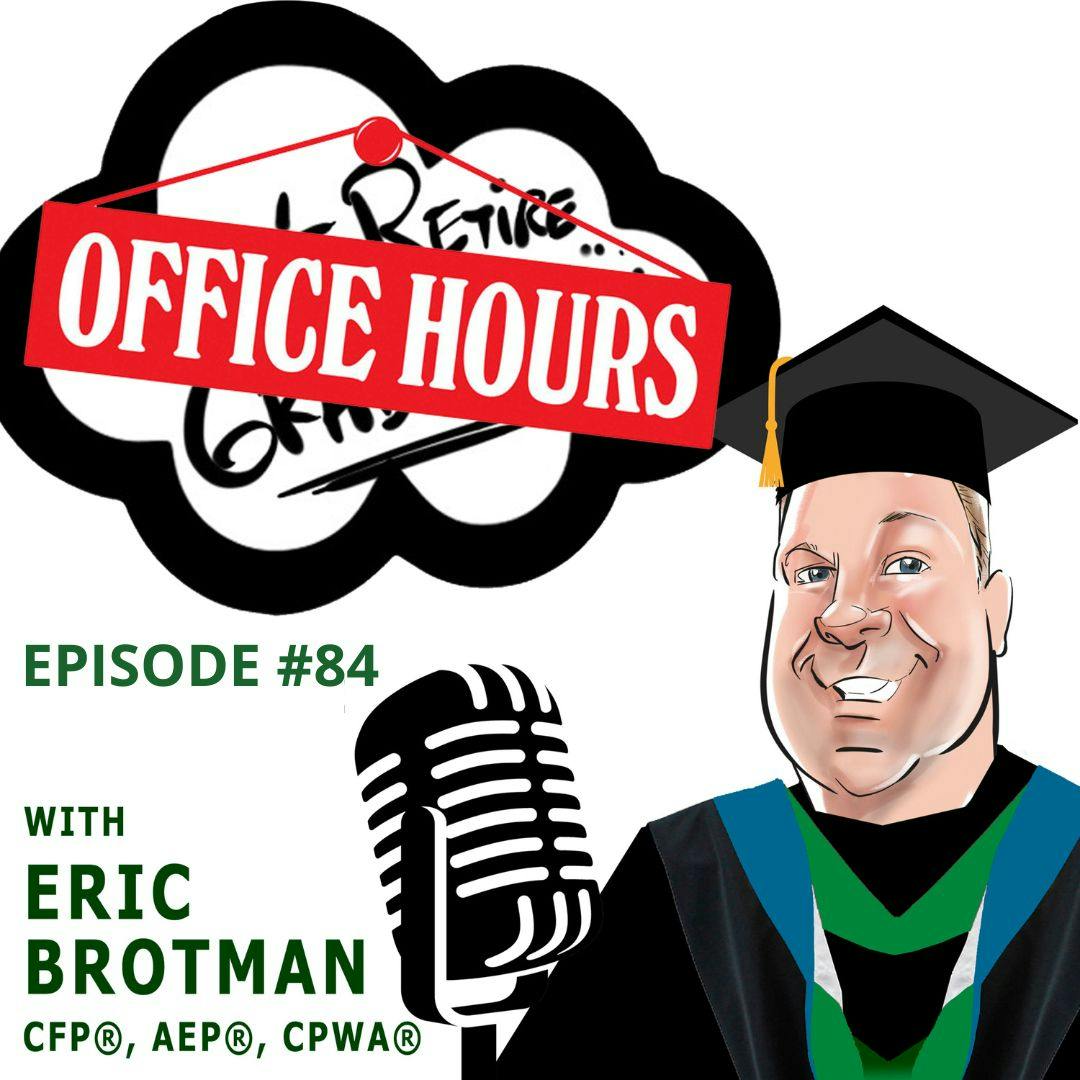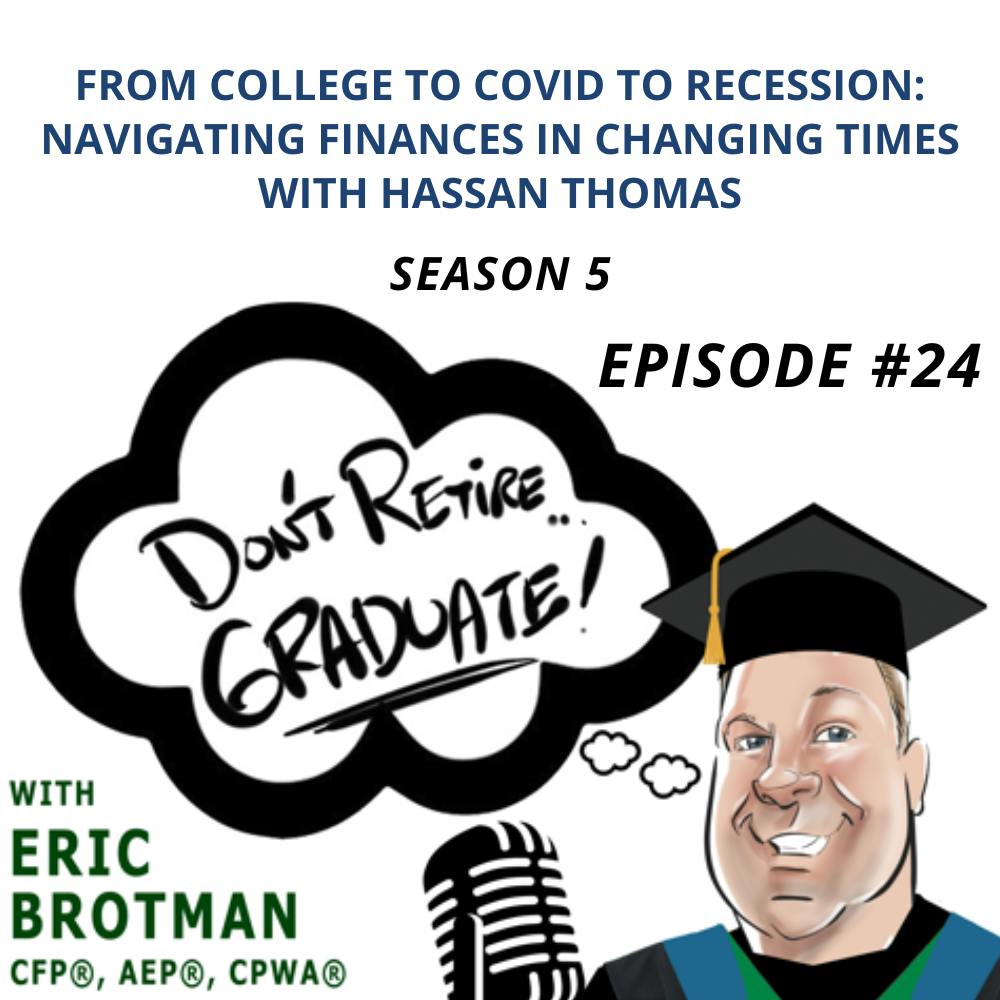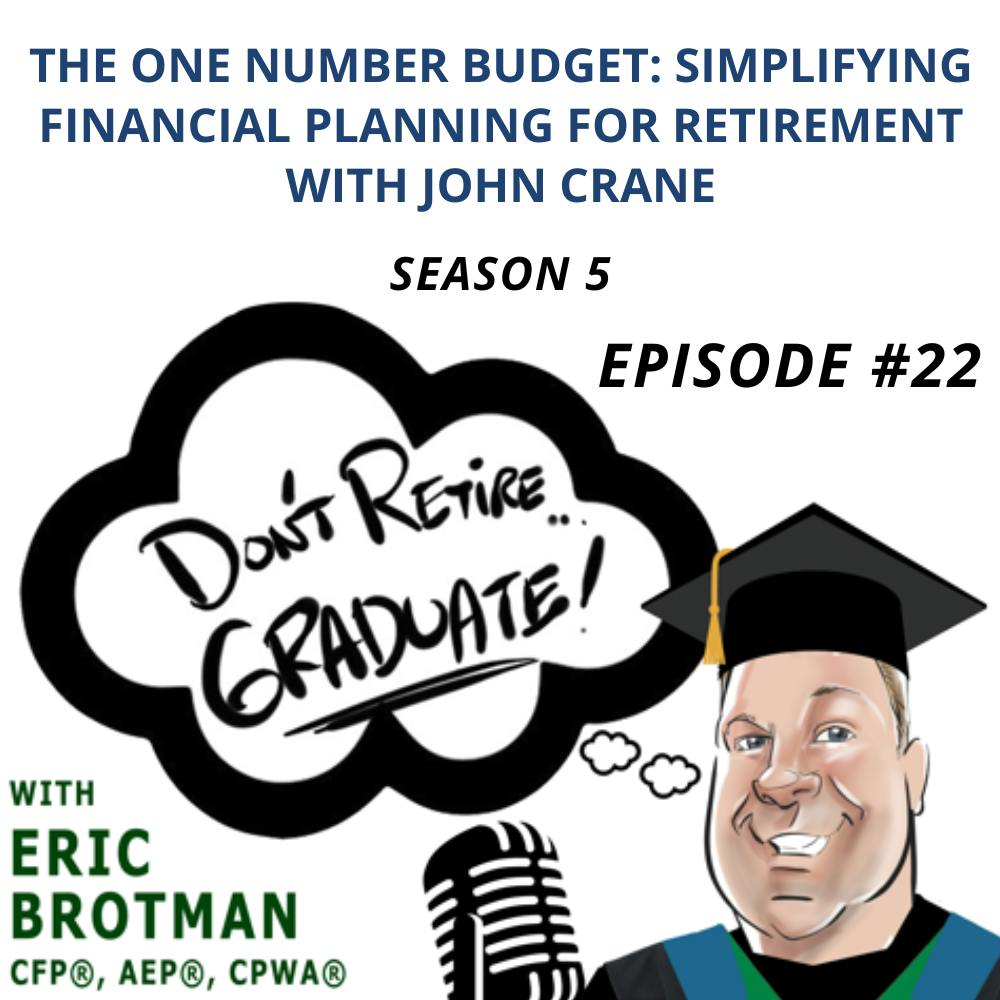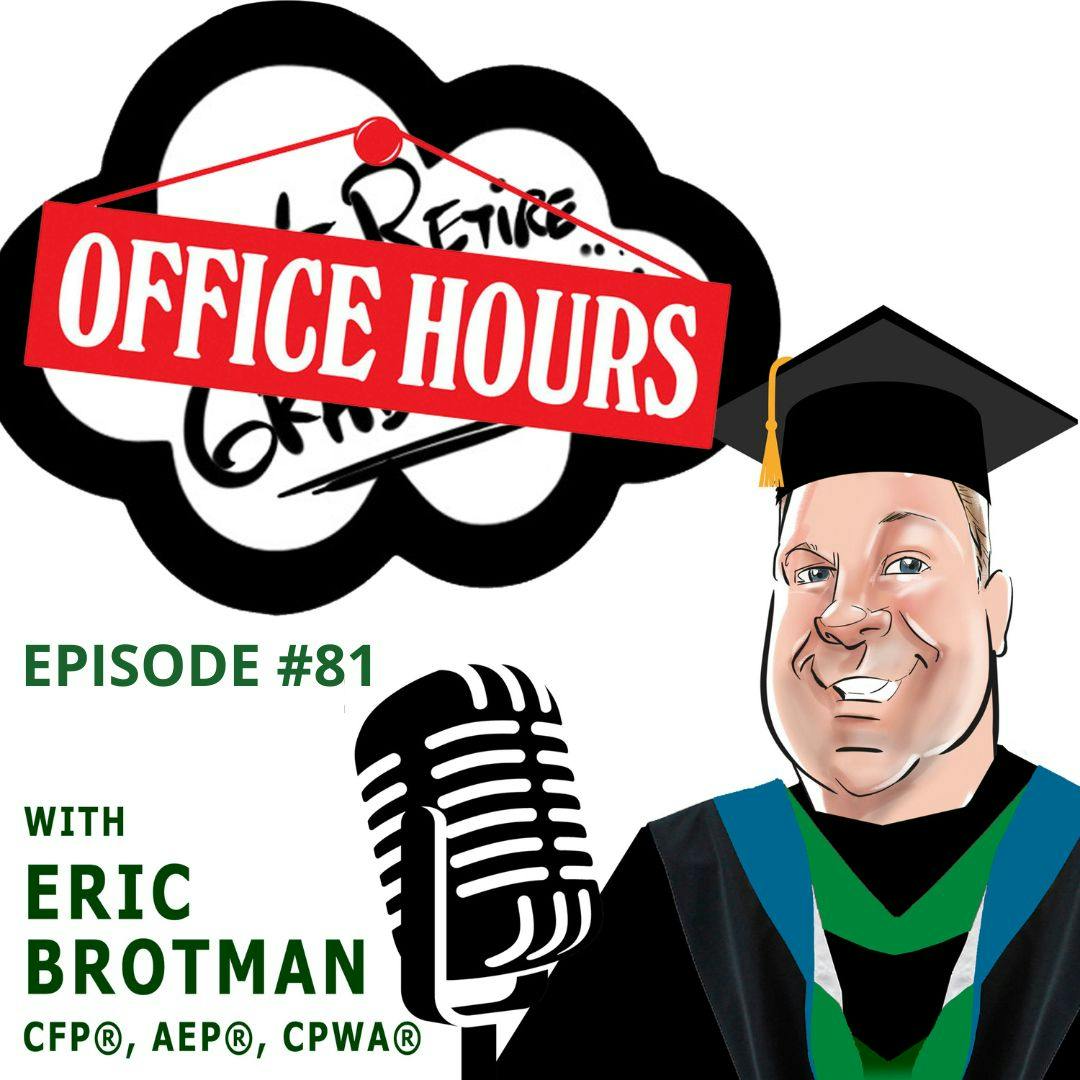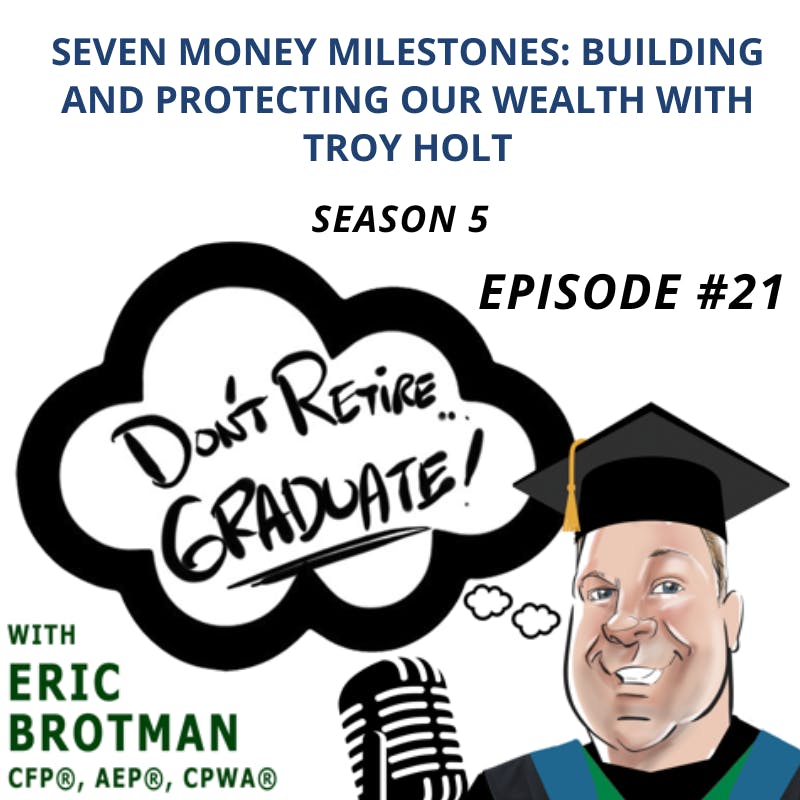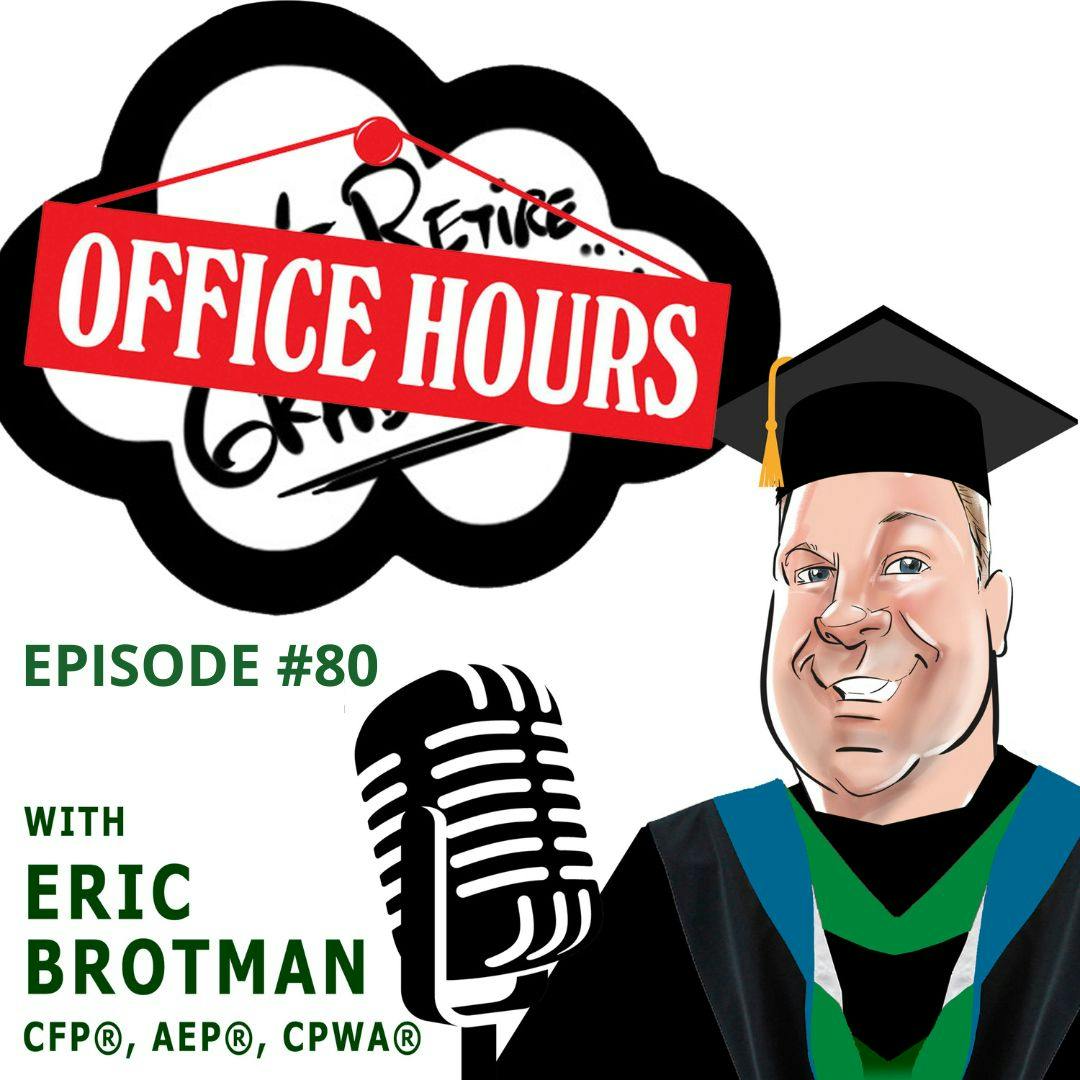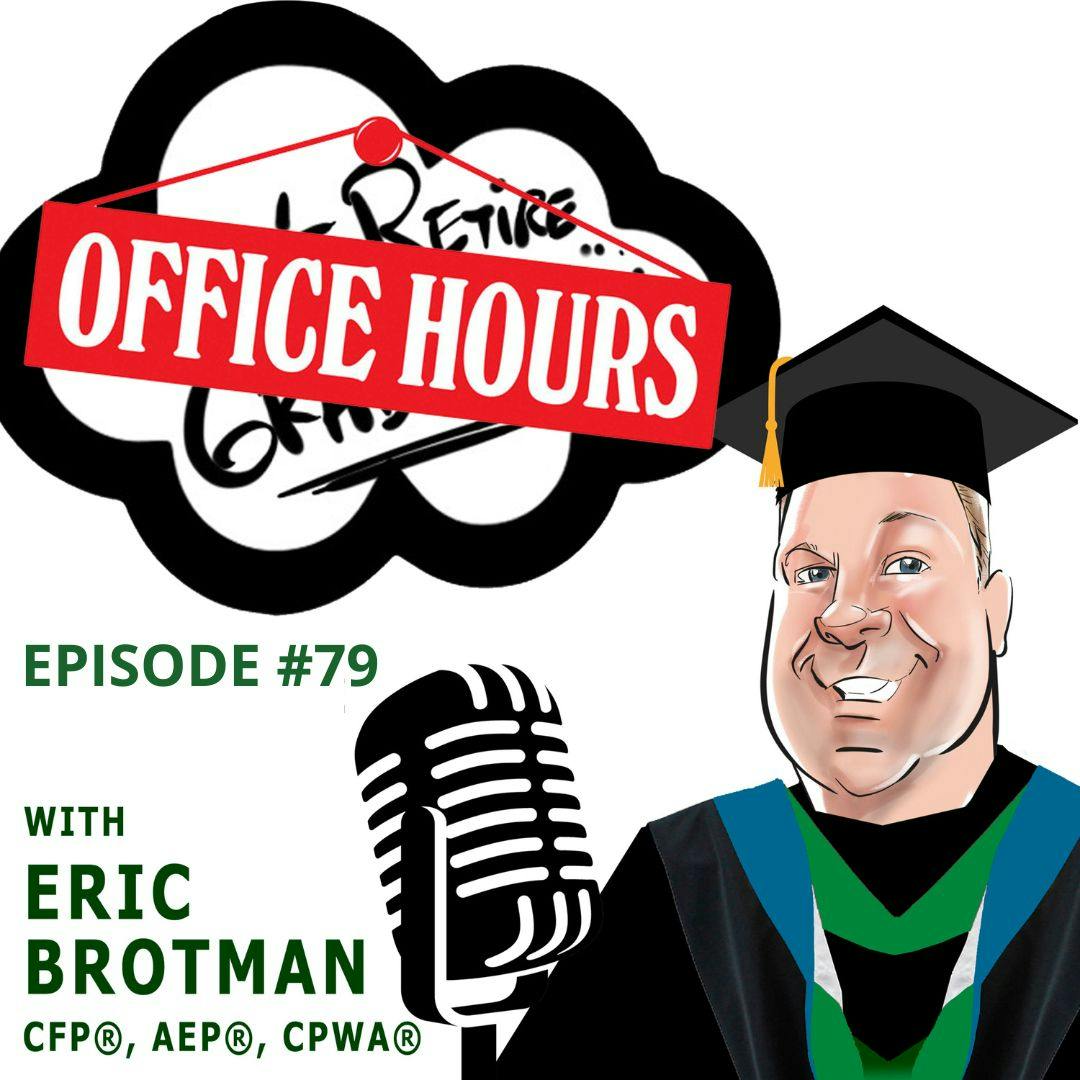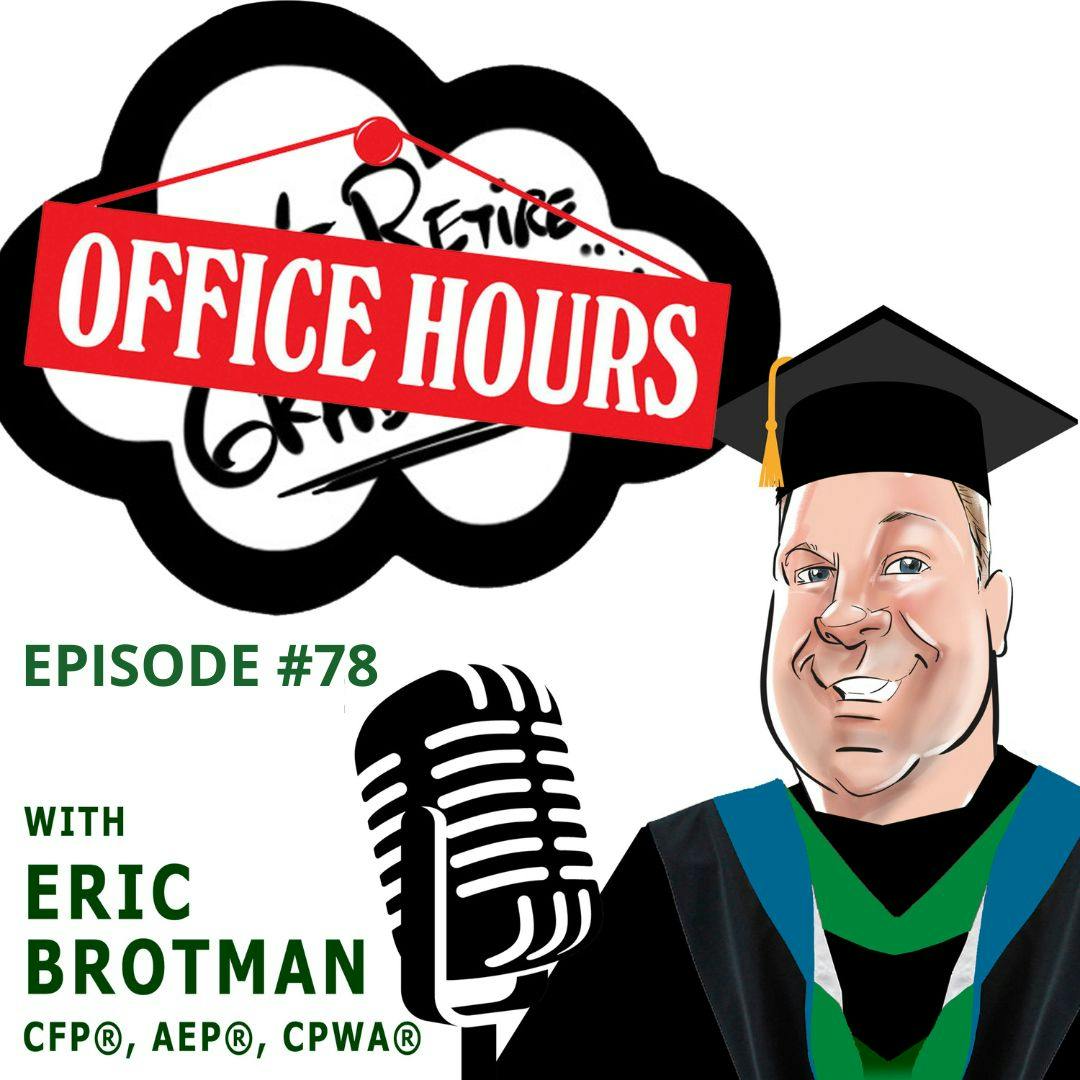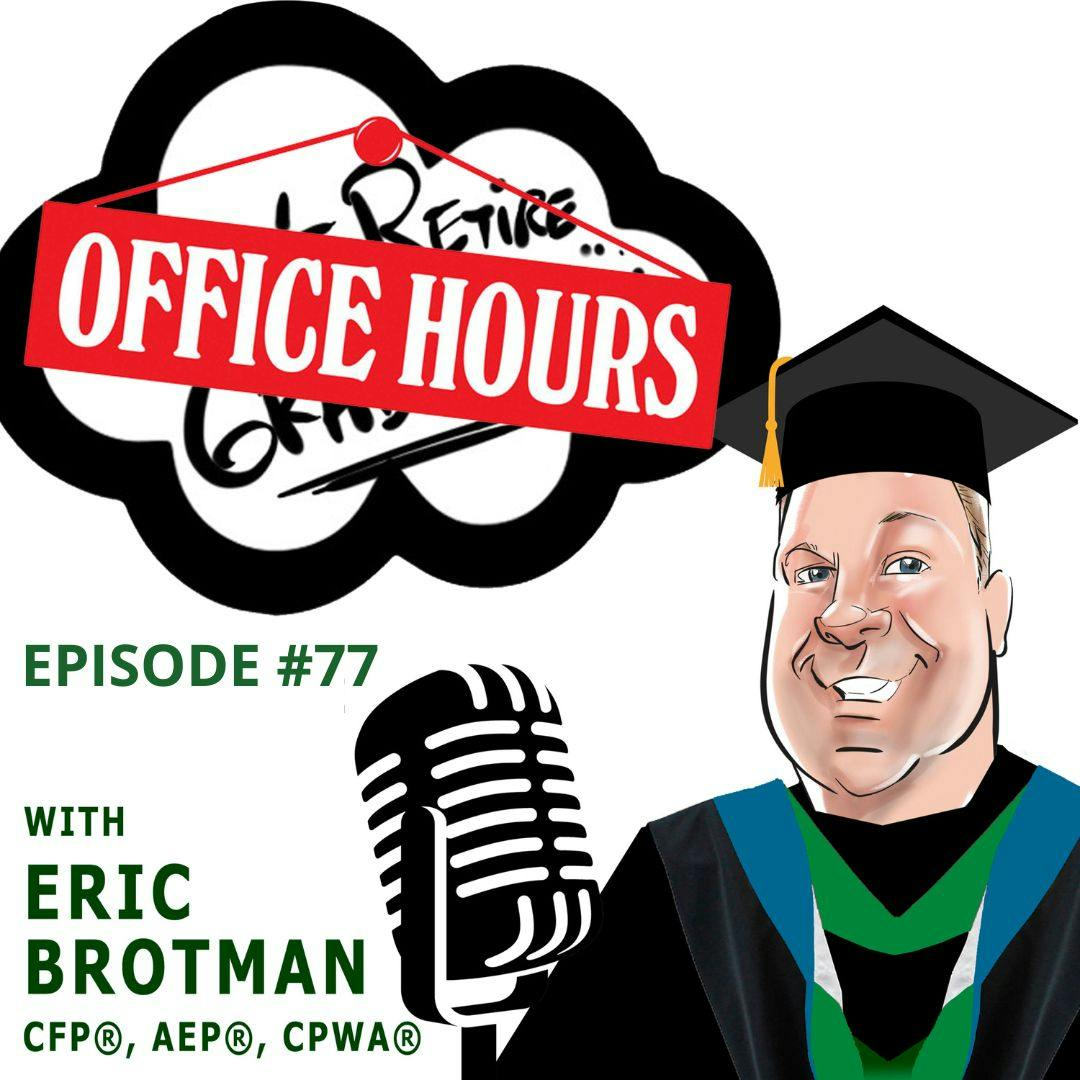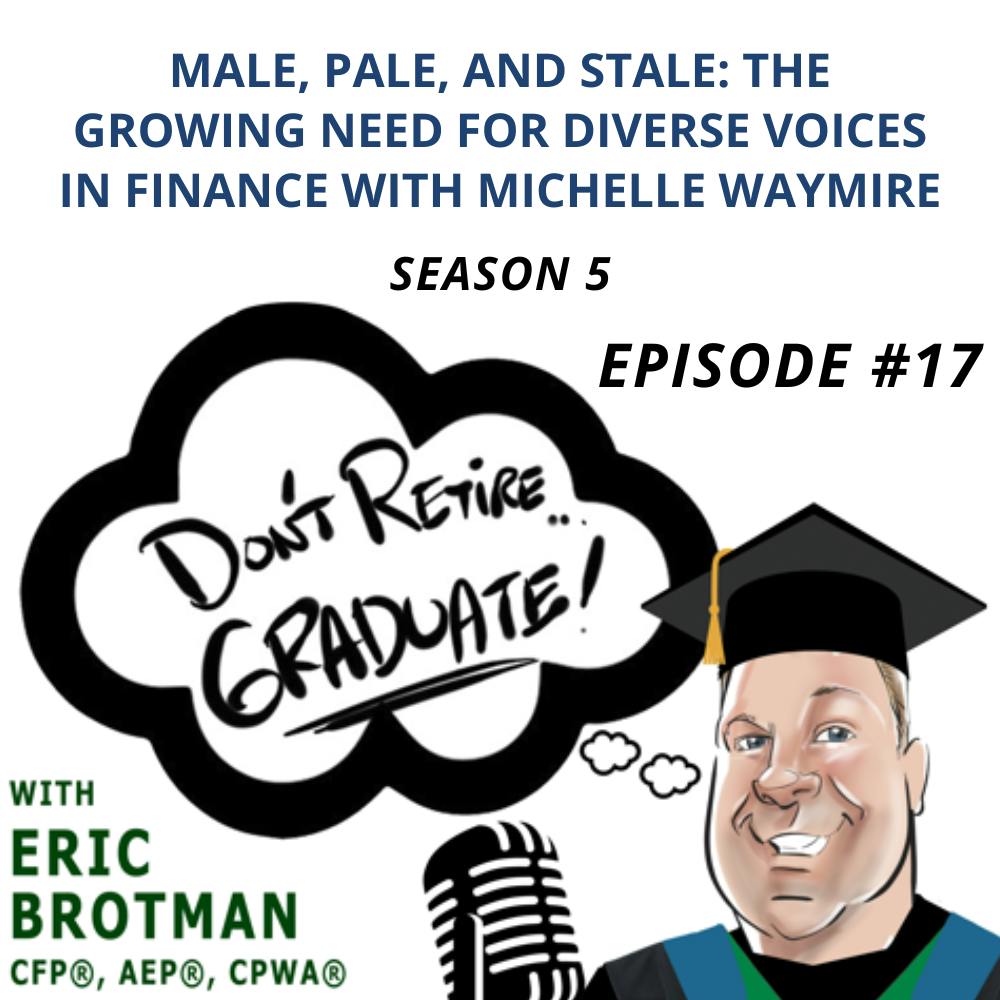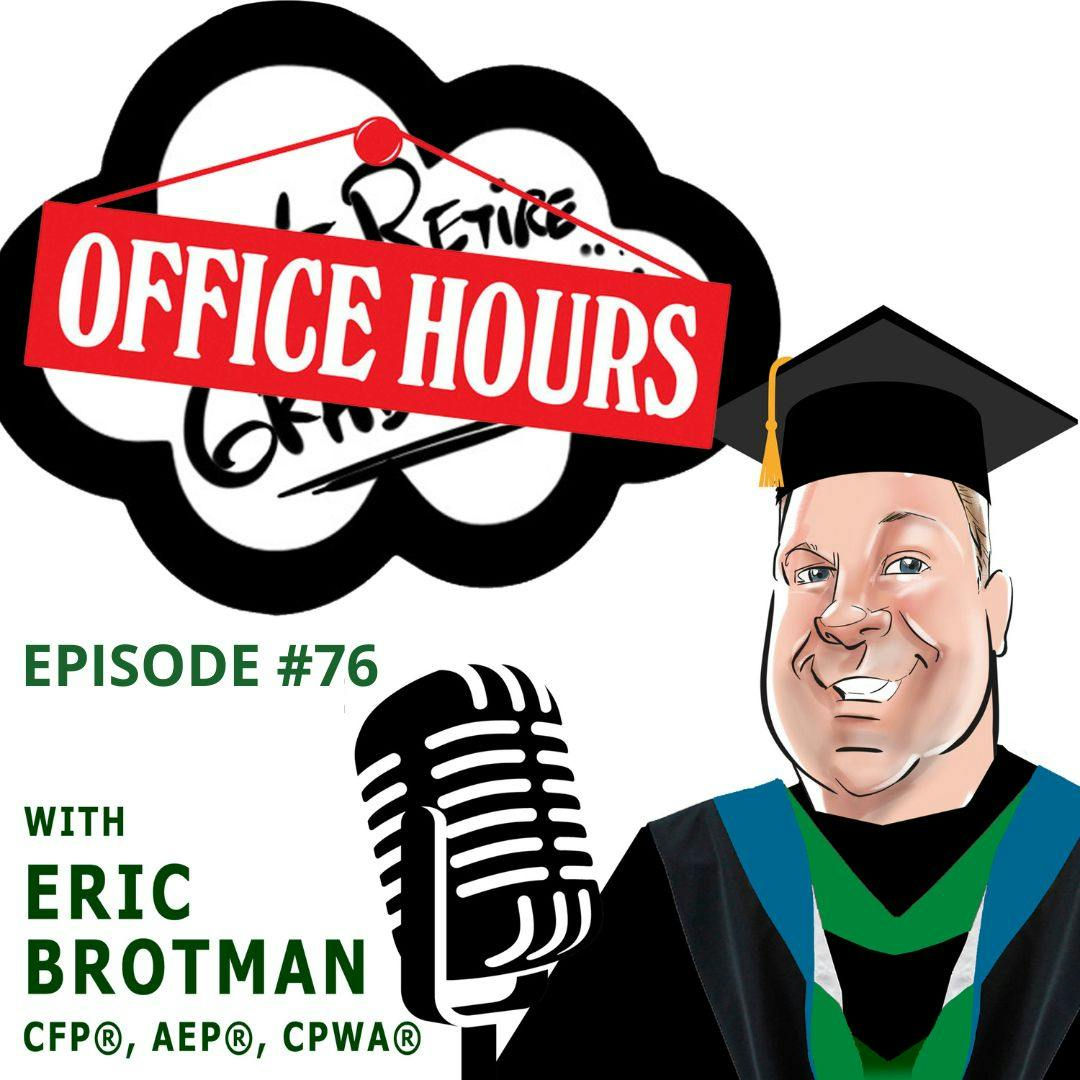
Don't Retire...Graduate Podcast
Author: Evergreen Podcasts
Subscribed: 33Played: 1,388Description
Don’t Retire… Graduate! Is the podcast that asks what you want to be when you grow up so you can graduate into retirement with a passion and a purpose. Hosted by Certified Financial Planner Practitioner, Eric Brotman, this show will explore different methods for saving money, paying down debt, raising financially literate children, growing your wealth, and reaching financial independence–whether you’re 35 or 65. Retirement is not the absence of work, but the absence of needing to work. So join us while we talk to award-winning, best-selling authors, finance experts, influencers, and people with amazing money stories to help you set and reach financial goals, discover your passions, and make a plan for what you want to be when you reach the point where work becomes optional. Plus, between full episodes we’ll answer listener questions about personal finance, investing, retirement readiness, taxes, and more. Topics covered include: budgets, credit, debt, emergency funds, balancing expenses, health savings accounts, insurance and risk management, financial advisors, mortgages, retirement savings, social security, money management, spending, fintech and finance apps, employee benefits, and the FIRE movement.


